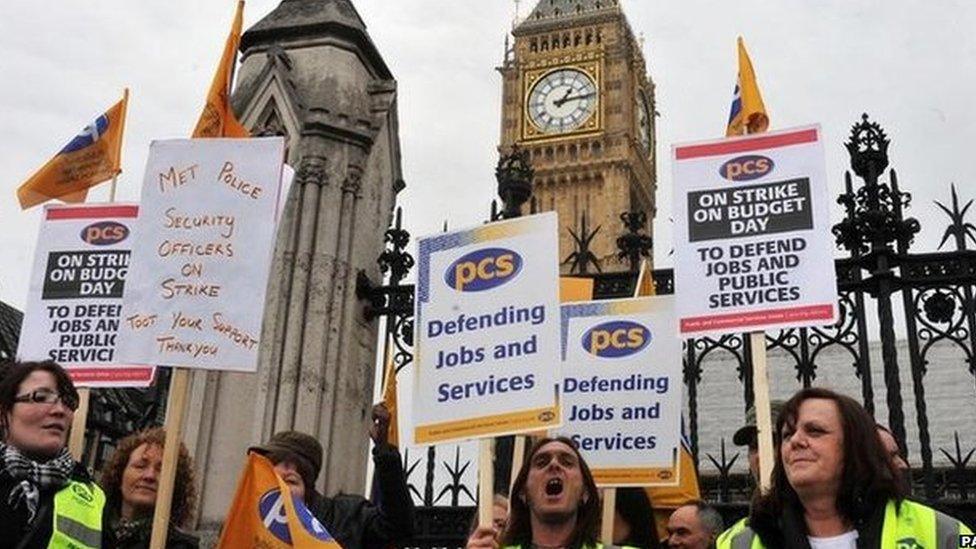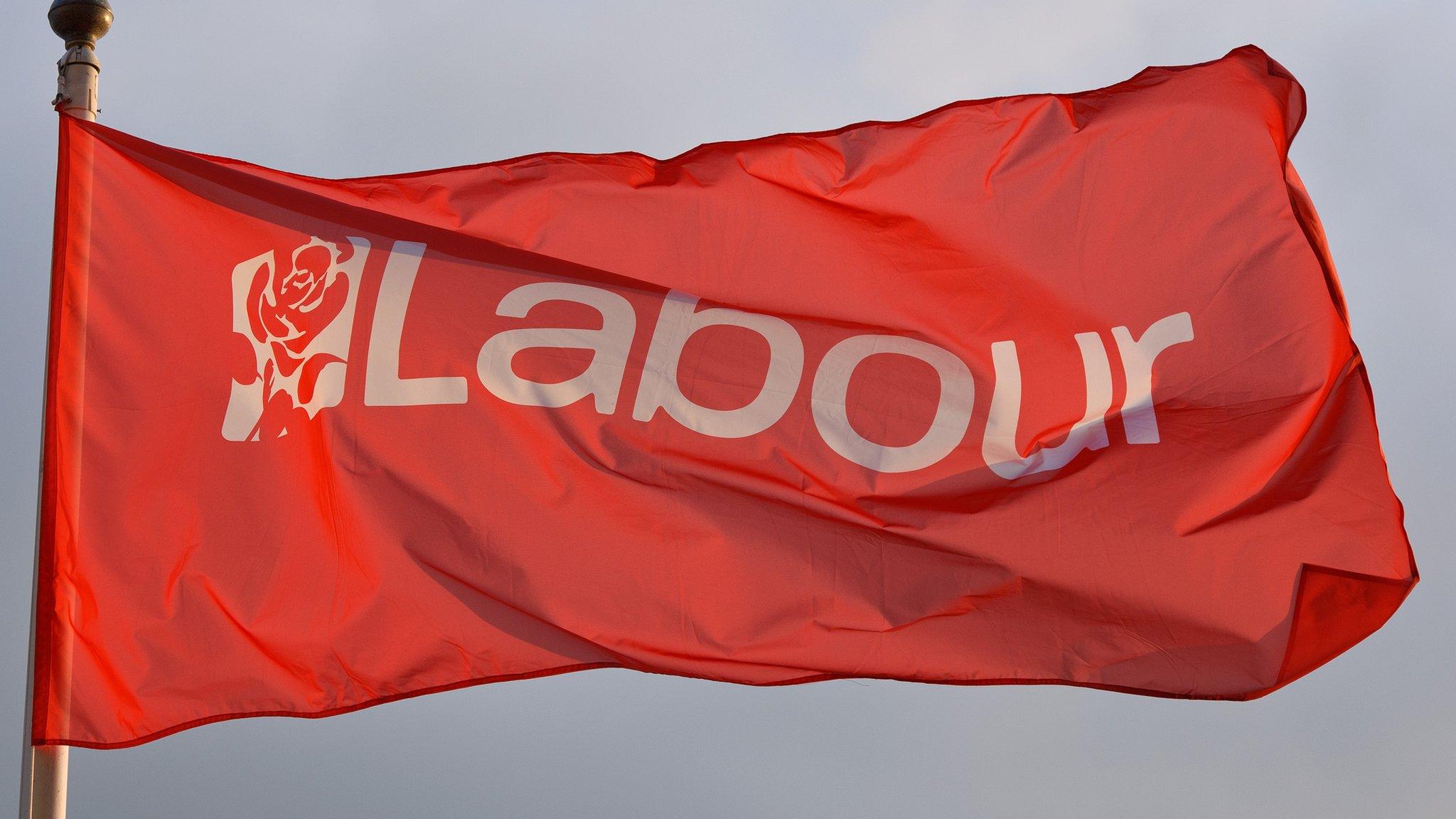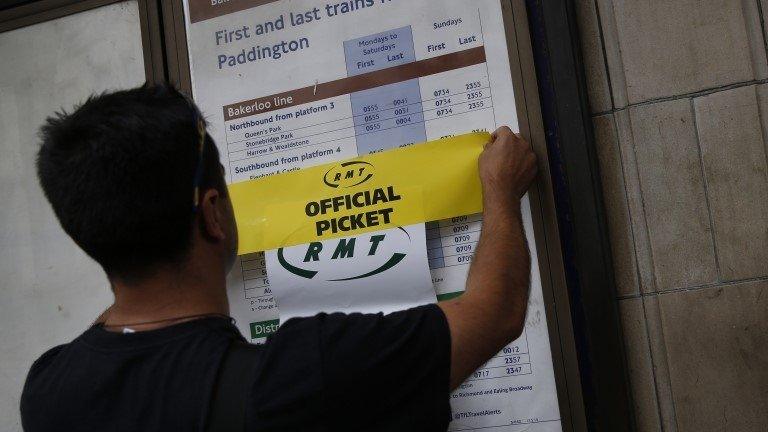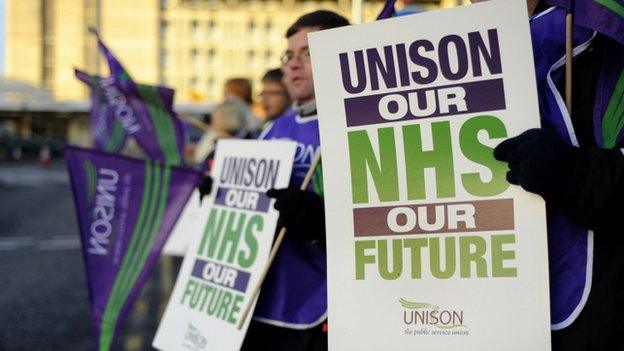Government U-turn over changes to trade union subscriptions
- Published

There has been cross-party opposition to plans to end the system known as "check-off"
The government has backed down over plans to end the right of workers to pay union subscriptions by deducting them from their wages.
Ministers wanted employees to organise the payment of union dues themselves by other means such as direct debit.
But unions argued that this would be more complicated for members and so lead to a loss of funds.
Lord Bridges of Headley announced a "pause" in the plans, saying there were "cannons" attacking them on all sides.
He told peers the government would change the Trade Union Bill, external to remove the end to "check-off" at its next stage in the House of Lords, saying the move had never been intended to undermine the union movement.
"Arguments have been made with considerable vim and vigour that by ending check-off and moving to direct debit, those on low pay and especially those who have pay day loans might have to cease being trade union members or have to pay extra bank charges," he said.
"Again, this is not our intention and never has been."
'Considerable damage'
The payment of subscriptions by deduction from wages can now continue - providing the union bears the administrative cost.
The Conservative peer who led the parliamentary campaign against the move, Lord Balfe, said he was "delighted" to be able to tear up the speech he had been about to make opposing the government.
"I think it was clear to anyone who looked at the detail that the government's proposals on check-off stood to do considerable damage both to the unions themselves and to their members and potential members," he said.
"I was particularly concerned about the impact on low paid, mostly female workers, who stood to lose out on the protection and benefits of trade union membership."
The TUC welcomed the U-turn, thanking all of those who had lobbied the government over the issue.
"Banning workers from choosing to pay union subs in a convenient way through their payroll would, as many have warned, damaged industrial relations and morale in key services," said its general secretary Frances O'Grady.
"While this is an important milestone, the TUC remains opposed to the Trade Union Bill in its entirety and will continue to push for further changes when it is debated again in the House of Commons next week."
Ministers are standing by other key aspects of the bill, such as the introduction of electronic balloting and restrictions on political funds used by unions for campaigning, despite a series of defeats in the Lords.
- Published11 January 2016

- Published7 September 2015

- Published15 September 2015
